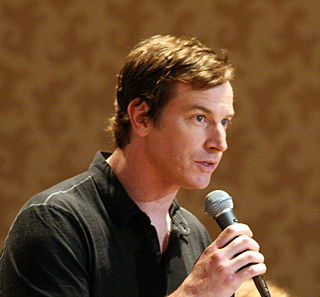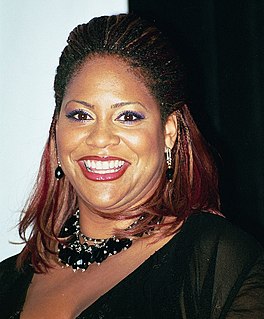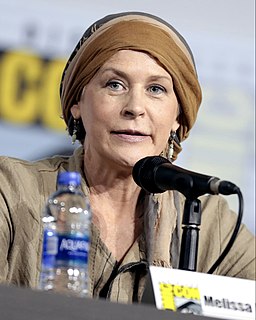A Quote by James Ivory
When I was doing the screenplay, people who read the book Call Me by Your Name would go, "Oh god, what are you going to do about the peach scene?" I'd say, "I don't know, but I'll do something." And finally I figured out that there was a way of doing it without being totally graphic. You can do it in a way where the audience gets it and accepts it.
Related Quotes
Do nothing that you would not like God to see. Say nothing you would not like God to hear. Write nothing you would not like God to read. Go no place where you would not like God to find you. Read no book of which you would not like God to say, "Show it to Me." Never spend your time in such a way that you would not like to have God say, "What are you doing?
No matter how many times people say it - 'Oh, I'm just writing this for myself' 'Oh, I'm just doing this for myself' - nobody's doing it for themselves! You're doing it for an audience. So whether I'm performing or writing a book or playing music, it's definitely to be put out there and to be received in some way, definitely.
The way I write is very much without kind of a goal. I have something I'm interested in and then I decide I'm going to explore it. I don't know where the characters are going to go, I don't know what the movie is going to do or what the screenplay is going to do. For me, that's the way to keep it alive.
What you and I might rate as an absolute disaster, God may rate as a pimple-level problem that will pass. He views your life the way you view a movie after you've read the book. When something bad happens, you feel the air sucked out of the theater. Everyone else gasps at the crisis on the screen. Not you. Why? You've read the book. You know how the good guy gets out of the tight spot. God views your life with the same confidence. He's not only read your story...he wrote it.
One of the things that I love when I go to a film or when I'm reading some book or whatever, is to be told a secret I thought only I knew and then someone says, "Oh my gosh, you know, too." And film can take us into private moments in a way that the theater, I think, kind of can't, and that's one of the reasons I like doing films. And the way a book can is that these little secrets and the private things that go on in our minds that maybe we haven't shared with anyone, and then someone writes it or shows it to you in a film, you think, "Oh, that's me. Oh my God, that's me, I have that secret."
I would go with my husband to the tailors where he gets his shirts made, and I would watch the bespoke process. I would ask them, "Would you be able to make that for me?" And they would always say, "Well, yes, but no." They were very French about it. I decided I would just do it for myself. And I started doing that. Then other people would notice, and want it. So I started doing things for friends, little pieces, and my own line grew that way.
As an actor, if you step to the side and you look at [Thornton's performance] technically, and you try to imagine doing what he was doing, most people would panic. Most people would be on the set, and they would be panicking, going, "I'm not doing anything!" All the ham instincts in you would be screaming, "You've got to indicate something here." And it's beautiful, in a way. And so I appreciate, even as an audience member, the courage that it takes to be... frankly, to be subtle.
If I get stuck, I look at a book that tells me how someone else did it. I turn the pages, and then I say, 'Oh, I forgot that bit,' then close the book and carry on. Finally, after you've figured out how to do it, you read how they did it and find out how dumb your solution is and how much more clever and efficient theirs is!
But, yeah, I'm really happy when I'm writing. When I'm being creative and when I have something that I can put down. You know, if you go out and you overhear a conversation or you have a thought, you have a receptacle to go home and say, 'Oh, this would be great in this script.' Your antenna's out in a different way, and I love that time.
It takes a very long time to read a script. I'll look at a script, but there are so many scripts. I remember once being at the dentist, and the guy was doing my teeth and telling me about the screenplay he'd written and he said, "Will you read it?" And I said "Oh...okay." And it turns out that it was about a dentist!






































